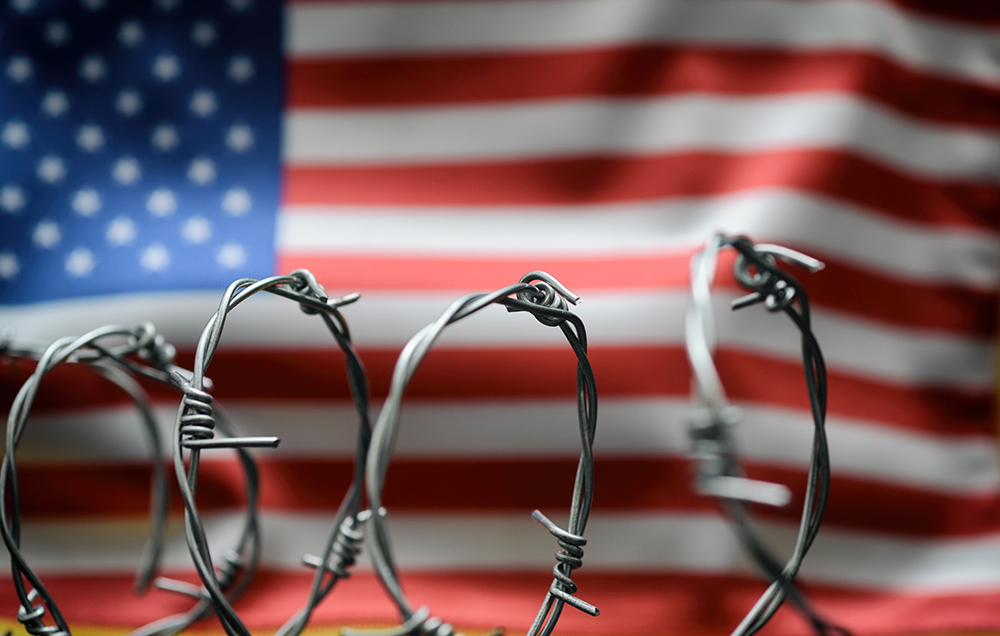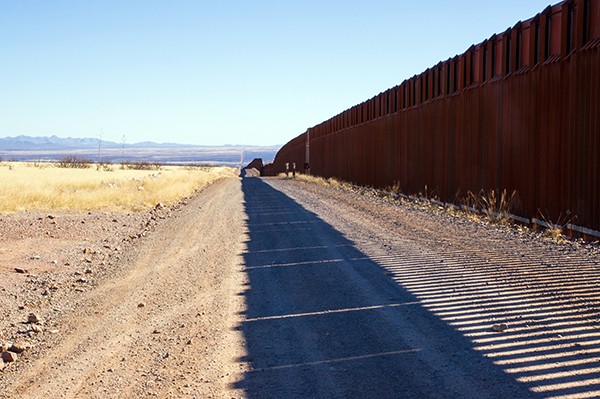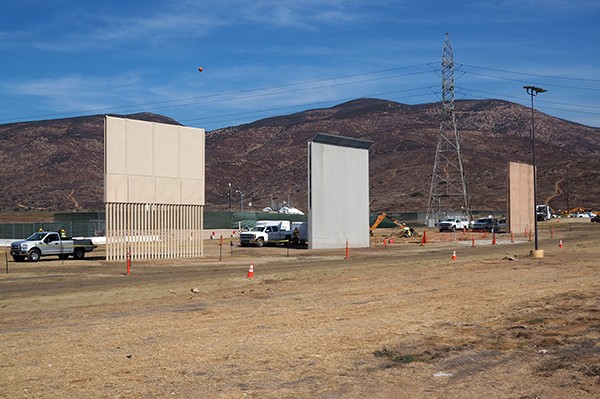“Title 42,” an obscure section of a 1944 law authorizing extraordinary [anti-]immigration powers during public health emergencies, was “discovered” by the Trump administration in 2020 as Covid-19 spread globally. They interpreted the title “loosely,” using it to deport people and deny asylum seekers access to the USA. With the election of Joe Biden, most hoped for relief and a return to policies that reflect the generosity and spirit of the United States — a “nation of immigrants.” Yet, the past 16 months have proven difficult in walking back Trump’s inhumane immigration policies, revealing the timidity of Biden and the Democrats’ approach to the ongoing immigration conundrum.
Trump, together with his brash, anti-immigrant senior policy adviser Stephen Miller, genuinely believed that closing off the nation to immigrants (well … certain immigrants) and asylum seekers would win them re-election in 2020. The “Muslim Ban” was one of their first noxious acts upon arrival in office. Trump — sensitive diplomat always — referred to certain African nations and (in our own hemisphere) El Salvador and Haiti as “shithole countries.” He made it clear that the U.S. should do more to promote immigration from places like … Norway.
Trump rejected our obligations under the Geneva Conventions and our own legal and moral obligations by refusing to process asylum seekers, preferring instead to leave them living in squalor on the Mexico side of the U.S./Mexico border. He also cut the number of refugees we accept down to a fraction of our usual acceptance rate, thus undermining our moral standing in the world.
He seized on the pandemic, took authority under Title 42, and expelled asylum seekers, including unaccompanied minors, under the contention that they posed a health risk to the American public.
Most immigrant advocates believed Biden would end the use of Title 42 on the first day of his presidency since it appeared to be an illegal and factually unsupportable use of the law. Many thought Biden would quickly end Trump’s “Wait in Mexico” policy, which has served only to strand thousands of Central Americans, Haitians, and Venezuelans (among others); the policy has benefited smugglers of narcotics and of human beings, and the criminal networks that prey on the vulnerabilities of people who can’t or won’t return to their nation of origin.
What to do? First, let’s change the narrative on immigration. This means being truthful about “why” people are fleeing to the United States. In the case of Haiti and El Salvador, our nation has supported (in recent history) repressive, corrupt “anti-communist” regimes that have not been kind to their people.
Second, let’s stop the racist nonsense about immigrants. Norwegians don’t want to come here! They live in a nicely socialist state of prosperity with full healthcare, long life-spans, and plenty of oil to sell.
Third, our economy prospers thanks to the work, contributions, creativity, and energy of immigrants. The arguments “against” this statement are simply fake news. If we continue to cut off legitimate paths to immigration and immigrants (for short-term political gains), we run the risk of becoming Japan or Italy, with an aging population, political and social hostility to immigrants from the global “south,” all leading to long-term economic stagnation.
The palpable anger and hostility on the far right in this nation does not translate to long-term economic growth and/or social stability. Take a look at January 6, 2021, as a prime example. The “Recent Right” is simply interested in winning; they want short-term political gains, so they can control budgets, power, and money. Period.
The open hostility, last month, of some senators toward an eminently qualified Supreme Court nominee hardly helped bring the nation together, and when our own Marsha Blackburn asked a Harvard-trained judge to define the word “woman,” most Americans rolled their eyes in wonder. The real wonder? How did this unqualified person win statewide office here in Tennessee?
The media has distorted the facts on immigration with sensationalistic reporting and frightening stories of “waves” of migrants heading to our (southern) border. The fact is people are allowed to come here, apply for refugee status, and receive a hearing before a judge — assuming their case is deemed credible. Our nation’s immigration laws are unique in this regard, and rather than bemoan the fact that people want to come here, we should celebrate the story of America as an open, immigrant-friendly nation. An immigrant-friendly nation whose prosperity — culturally, socially, and economically — has centered on the welcoming of immigrants.
If comprehensive immigration reform is legislatively impossible, Biden needs to implement a comprehensive executive policy. He failed to immediately rid us of Title 42, and he can’t win the political argument by attempting to placate the unreasonable right with half-measures and reliance on Trump-era policies.
Biden must reframe the narrative with policies that demonstrate who we are as a people. Immigrants are instrumental to the prosperity of our nation — it’s always been this way. Biden should make this argument; he needs to spend some of his waning political capital to demonstrate a clear commitment to the bedrock ideals that have made America great.
Bryce Ashby is a Memphis-based attorney and the board chair of Latino Memphis. Michael LaRosa teaches history at Rhodes College.

 Mati Parts | Dreamstime.com
Mati Parts | Dreamstime.com  Dhvstockphoto | Dreamstime.com
Dhvstockphoto | Dreamstime.com 

 Latino Memphis
Latino Memphis 
 Vaclav Lang | Dreamstime.com
Vaclav Lang | Dreamstime.com 
